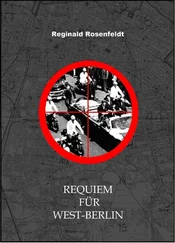Isaiah Berlin - Russian Thinkers
Здесь есть возможность читать онлайн «Isaiah Berlin - Russian Thinkers» весь текст электронной книги совершенно бесплатно (целиком полную версию без сокращений). В некоторых случаях можно слушать аудио, скачать через торрент в формате fb2 и присутствует краткое содержание. Год выпуска: 0101, Жанр: Старинная литература, на русском языке. Описание произведения, (предисловие) а так же отзывы посетителей доступны на портале библиотеки ЛибКат.
- Название:Russian Thinkers
- Автор:
- Жанр:
- Год:0101
- ISBN:нет данных
- Рейтинг книги:3 / 5. Голосов: 1
-
Избранное:Добавить в избранное
- Отзывы:
-
Ваша оценка:
- 60
- 1
- 2
- 3
- 4
- 5
Russian Thinkers: краткое содержание, описание и аннотация
Предлагаем к чтению аннотацию, описание, краткое содержание или предисловие (зависит от того, что написал сам автор книги «Russian Thinkers»). Если вы не нашли необходимую информацию о книге — напишите в комментариях, мы постараемся отыскать её.
Russian Thinkers — читать онлайн бесплатно полную книгу (весь текст) целиком
Ниже представлен текст книги, разбитый по страницам. Система сохранения места последней прочитанной страницы, позволяет с удобством читать онлайн бесплатно книгу «Russian Thinkers», без необходимости каждый раз заново искать на чём Вы остановились. Поставьте закладку, и сможете в любой момент перейти на страницу, на которой закончили чтение.
Интервал:
Закладка:
terrified of him !'1
The attack from the left was a good deal more virulent. Dobrolyubov's successor, Antonovich, accused T urgenev in the Contemporary'
of perpetrating a hitleous and disgusting caricature of the young.
Bazarov was a brutish, cynical sensualist, hankering after wine and
women, unconcerned with the fate of the people; his creator, whatever
his views in the past, had evidently crossed over to the blackest reactionaries and oppressors. And, indeed, there were conservatives who congratulated Turgenev for exposing the horrors of the new, destructive nihilism, and thereby rendering _a public service for which all men of decent feeling must be grateful. But it was the attack from the_
1 /. 8. TurgtntfJ c> c>ospomint�niyt�lll JDflrtmtllllilw, vol. 1, p. 343·
I ibid, PP· 343-4·
a Letter to Turgenev, quoted by him in LittrtiJumyt i z!Jittislit tJospomint�niyt�, P· I sB.
• See M. A. Antonovich, 'Aamodey nashegovremeni', Swrtmtnnil, March
1 862, pp. 6S-I I4, and V. G. Bazanov, 'Turgenev i antinigilisticheskii roman',
K trrtliytl (Petrozavodsk, 1940 ), vol. 4. p. 160. Also V. A. Zelinsky, K ritichslit
rt1z/Jory romt111t1 'Ottsy i tkti' I. S. Turgtllnltl (Moscow, 1 894), and V.
Tukhomitsky, 'Prototipy Bazarova', K prt�t:>tk (Moacow, 1904), pp. 227-85.
•'
:18 1
R U SS IAN THINKERS
left that hurt Turgenev most. Seven years later he wrote to a friend
that 'mud and filth' had been flung at him by the young. He had been
called fool, donkey, reptile, Judas, police agent.1 And again, 'While
some accused me of • • . backwardness, black obscurantism, and
informed me that "my photographs were being burnt amid contemptuous laughter", yet others indignantly reproached me with kowtowing to the . . . young. "You are crawling at Bazarov's feet !" cried one
of my correspondents. "You are only pretending to condemn him.
Actually you scrape and bow to him, you wait obsequiously for the
favour of a casual smile !" • . . A shadow has fallen upon my name.'1
At least one of his liberal friends who had read the manuscript of
Fathers tmd Childrm told him to burn it, since it would compromise
him for ever with the progressives. Hostile caricatures appeared in the
left-wing press, in which Turgenev was represented as pandering to
the fathers, with Bazarov as a leering Mephistopheles, mocking his
disciple Arkady's love for his father. At best, the author was drawn
as a bewildered �gure simultaneously attacked by frantic democrats
from the left and threatened by armed fathers from the right, as he
stood helplessly between them.8 But the left was not unanimous. The
radical critic Pisarev came to Turgenev's aid. He boldly identified
himself with Bazarov and his position. Turgenev, Pisarev wrote,
might be too soft or tired to accompany us, the men of the future;
but he knows that true progress is to be found not in men tied to
tradition, but in active, self-emancipated, independent men, like
Bazarov, free from fantasies, from romantic or religious nonsense.
The author does not bully us, he does not tell us to accept the values
of the 'fathers'. Bazarov is in revolt; he is the prisoner of no theory;
that is his attractive strength; that is what makes for progress and
freedom. Turgenev may wish to tell us that we are on a false path,
but in fact he is a kind of Balaam: he has become deeply attached to
the hero of his novel through the very process of creation, and pins
all his hopes to him. 'Nature is a workshop, not a temple', and we are
workers in it; not melancholy daydreams, but will, strength, intelligence, realism-these, Pisarev declares, speaking through Bazarov, 1 To L. Pietsch, 3 June I 869.
1 'Po povodu OtiiiJrl i tktti' (I 869), LittrtJit11'71Jt i zllittislit oospomi11tJiliyt�,
PP· I S7-9·
a e.g. in the journal Ost1 (I863 No7). See M. M. K.levensky,'lvan Sergeevich
Turgenev v karikaturakh i parodiyakh', Go/os mi11tlf!shgo, I 9 I 8 Nos I-3,
pp. I 8 5-2 I 8, and D11my i pts11i D. D. Mi11t1tflt1 (St Petersburg, I 863).
2.82.

FATHERS AND C H ILDREN
these will find the road. Bazarov, he adds, is what parents today see
emerging in their sons and daughters, sisters in their brothers. They
may be frightened by it, they may be puzzled, but that is where the
road to the future lies.1
Turgenev's familiar friend, Annenkov, to whom he submitted all
his novds for criticism before he published them, saw Bazarov as a
Mongol, a Genghis Khan, a wild beast symptomatic of the savage
condition of Russia, only 'thinly concealed by books from the Leipzig
Fair'.1 Was Turgenev aiming to become the leader of a political
movement? 'The author himself . . . does not know how to take him ..
he wrote, 'as a fruitful force for the future, or as a disgusting boil on
the body of a hollow civilisation, to be removed as rapidly as possible. •a
1 D. I. Pisarev, 'Bazarov' (Russloe slflfiD, 1 862, No 3), PDifiH so!Jranit
sod1i11t11ii (St Petersburg, I4JOI), vol. 2, pp. 379-4-28; and 'Realisty' (1 864-),
ibid., vol. 4. pp. 1-14-6. It is perhaps worth noting for the benefit of those
interested in the history of Russian radical ideas that it was the controversy
about the character of Bazarov that probably inJluenced Chemyshevsky in
creating the character of Rakhmetov in his famous didactic novel 11'/uzl is
lo lit Jont?, published in the following year; but the view that Rakhmetov
is not merely 'the answer' to Bazarov, but a 'positive' version of Turgenev's
hero (e.g. in a recent introduction to one of the English translations of the
novel) is without foundation. Pisarev's self-identification with Bazarov
marks the line of divergence between the rational egoism and potential
elitism of the 'nihilists' of Russ lot slflfiiJ with their neo-Jacobin allies of the
1 86os-culminating in Tkachev and Nechaev-and the altruistic and genuinely
egalitarian socialism of Sflflrtmmtflil and the populists of the 7os, with their
acuter sense of civic duty, whom Turgenev later attempted to describe, not
always successfully, in Yirgin Soil (see on this Joseph Frank, 'N. G. Chernyshevsky: A Russian Utopia', Tnt Soulntm RtJJitw, Baton Rouge, Winter 1 967, pp. 68-84-). This emerges most clearly in the famous controversy between
Tkachev and Lavrov in the 70s. Bazarov's historical importance is considerable, not because he is the original but because he is one of the antitheses of Rakhmetov; and this despite the story, which, according to at least one
source, Turgenev did not deny, that the same individual may have served
IS the 'model' for both. To this extent the indignant attacks by Antonovich
and later by Shelgunov, however intemperate or valueless IS criticism, were
not without foundation.
I Letter to Turgenev, 26 September 1 861. Quoted in V. A. Arkhipov, 'K
tvorcheskoi iatorii romana I. S. Turgeneva 0111y i tltti', Russlaya liltratura,
Moscow, 19S8 No I , p. 148.
I ibid., P· 147·

R U S SIAN THINKERS
Yet he cannot be both, 'he is a Janus with two faces, each party will
see only what it wants to see or can understand.'1
Katkov, in an unsigned review in his own journal (in which the
novel had appeared), went a good deal further. After mocking the
Читать дальшеИнтервал:
Закладка:
Похожие книги на «Russian Thinkers»
Представляем Вашему вниманию похожие книги на «Russian Thinkers» списком для выбора. Мы отобрали схожую по названию и смыслу литературу в надежде предоставить читателям больше вариантов отыскать новые, интересные, ещё непрочитанные произведения.
Обсуждение, отзывы о книге «Russian Thinkers» и просто собственные мнения читателей. Оставьте ваши комментарии, напишите, что Вы думаете о произведении, его смысле или главных героях. Укажите что конкретно понравилось, а что нет, и почему Вы так считаете.










